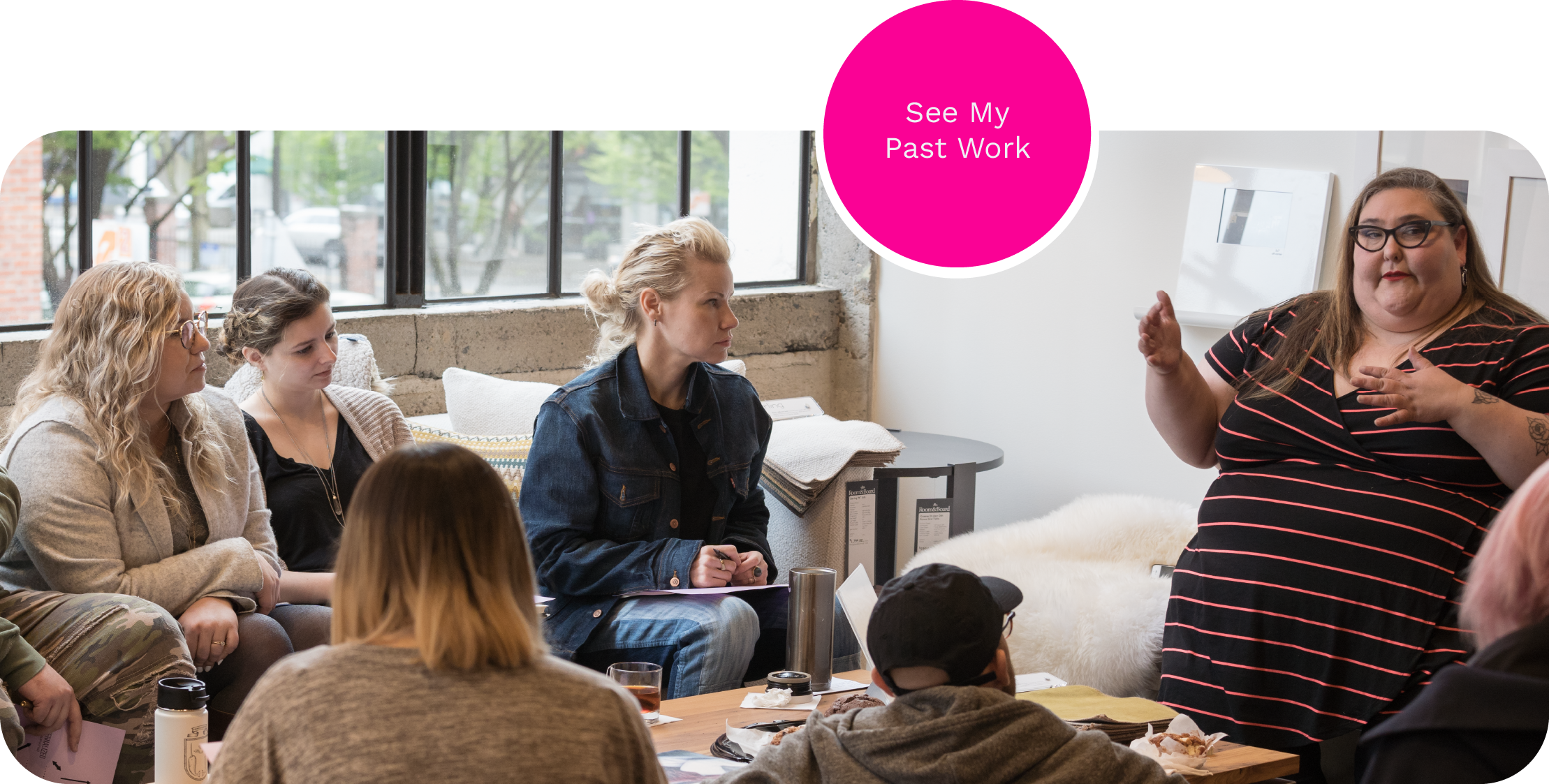Klahowya, I’m Shilo!
A consultant focused on anti-oppression, trauma informed care, and organizational change.
I understand how deep-seeded values and assumptions work in harmony with prejudice and connect to and maintain system discrimination. Dismantling how those mechanisms uphold barriers, stigmas and violence is at the crux of my organizational healing work.
P.S. Klahowya is "welcome" in Chinook Wawa
I work with
To do the work…
-
I currently offer over 21 trainings that span topics such as trauma informed care, equity and liberation, white supremacy in professional culture, conflict and feedback, body sovereignty and navigating health systems, Native American history and culture, and workplace wellness. All the training can be adapted to fit your needs and different training courses can be brought together to create a training series. I'm always expanding my training offerings so to learn more see my training catalog: here.
-
Workshops are a great way to bring together learning, experience and current challenges so that your organization moves from simple window dressing of equity, liberation or trauma informed care to implementation and organizational transformation. Workshopping is all about collaboration, practicing what we have learned. Making mistakes and learning from them, and engaging in personal reflection and organizational change. Coming together as a department, program or organization after intensive training is a great way to incorporate new learning and growth. See my training catalogue for examples of workshops provided.
-
I use trauma informed and equity focused tools and practices in facilitation on a number of topics and situations. This could look like assessing power dynamics and past and current relationships between people in the facilitation group. Meeting with group members and stakeholders before the facilitation to make sure there is alignment and understanding. Being intentional about equity focuses questions and conversations from the beginning and not as an afterthought. Using affinity discussion spaces, prioritizing often overlooked voices and perspectives and creating group agreements.
-
Many organizations and individuals request consultation around specific challenges, complex dynamics, and areas of hurt and re-traumatization. Consultation is a great tool for rethinking a situation and get a fresh perspective for more solutions going forward. Consultation can also be effective for organizations and groups of people unsure of next steps in a process or how to include multiple voices or needs of stakeholders.
-
During or after a training, coaching can be a great tool for helping organizations and staff work through implementation of training and workshops. Taking lessons learned and concepts and making them part of policy and every-day practice. Coaching can also look like practicing a difficult conversation or helping staff and leaders understand their own struggles, biases and information they need to unlearn in a situation or practice. Providing validation, emotional and psychological supports, reflection questions and other tools can help individuals, programs and organizations reach deeper levels of trauma informed practice, equity, liberation and healing.
-
I often use several different kinds of assessment when helping organizations and teams with challenges, setting goals or changing programming or services. Examples of helpful assessment are collecting and analyzing survey data or other types of metrics in understanding the current status of a program or how a group of people are responding to services or a range of experiences. This could be internal data about staff or external data about client and patient experiences. Assessment is also available in the form of one-on-one or small group feedback conversations where information is formed into common themes, challenges, opportunities and "red flag" areas to be share with stakeholders and leadership. When organizations are working on trauma informed and equity practices it can be helpful to have me look through policy, practices and procedure materials (written documents, video, websites, etc) and give feedback on wording, phrasing and gaps of knowledge or understanding. Attending internal or external meetings or events to assess trauma informed practices and equity are also very helpful to those looking for feedback on changes they have made and still need to make in their service or experience delivery. Assessment of the built environment for emotional, psychological and/or physical barriers and needs are also important for those wanting to create welcoming, safer and more accessible working and service providing environments. Going past ADA requirements to looking at how people of size, people with various disabilities, LGBTQIA+ folks and people from a range of experiences might feel and experience an environment. Assessment is a powerful and essential tool in organizational change and healing.
Find additional tips and resources on my blog ⟶
"Shilo has years of experience telling stories and sharing wisdom that help to guide others to fulfill their greatest potential. Well versed in Native wisdom, body sovereignty, public speaking, teaching at many levels, and in general compassion, she's the perfect consulting voice to add enrichment of the mind, body, and spirit to any event."
— Jay Em









Explore the critical role of psychological safety in the workplace, discovering its profound impact on individual well-being and team effectiveness.